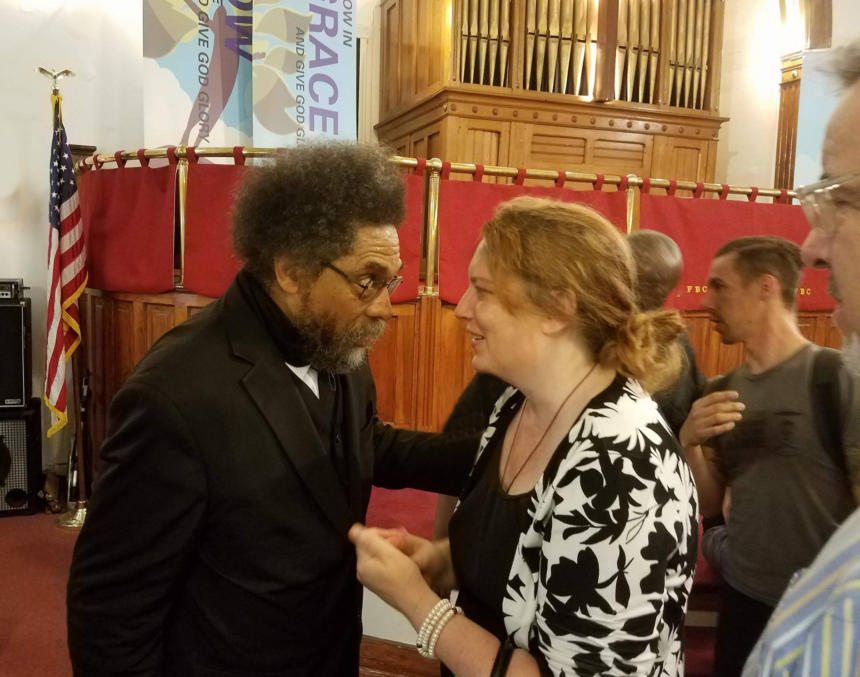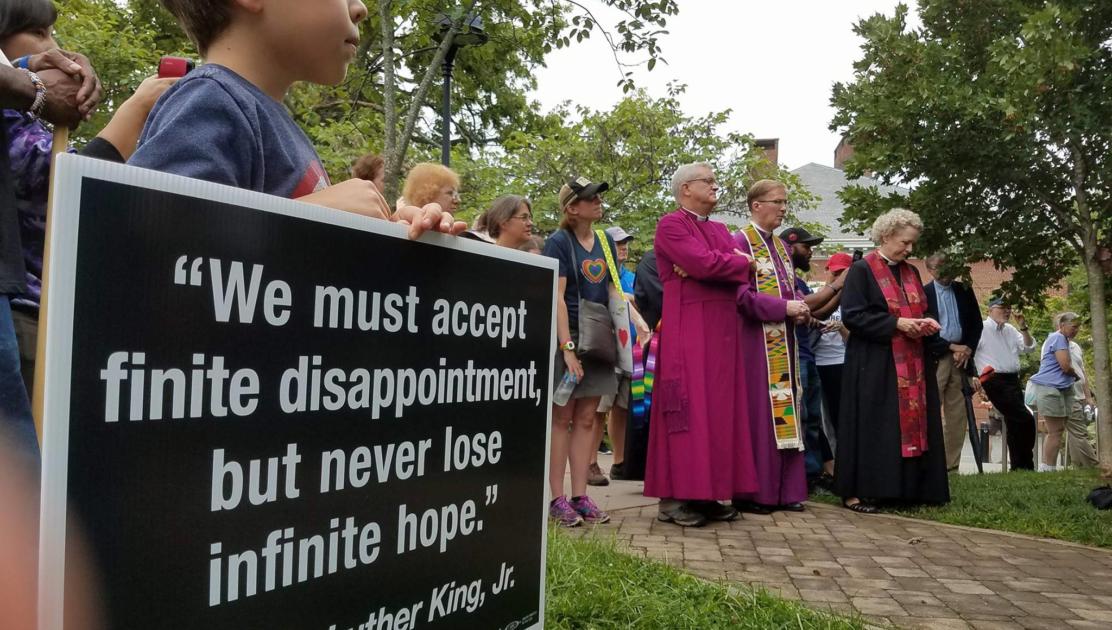Bearing Witness in Charlottesville
By Stacey MitchellIt didn’t take long to see the morning unfold into violence. After it did, the police had the authority to shut down the “Unite the Right” rally—a gathering of neo-Nazi and white supremacist groups in Charlottesville, Virginia to protest the removal of the Robert E. Lee statue at the recently renamed “Emancipation Park.”
The police arrived at 11am to shut down the rally, which was now deemed an illegal gathering because of the violence and the governor had declared a state of emergency. Many of the “Unite the Right” protesters retreated, but a few dozen remained to confront the counter-protesters with their anger.
There were legal observers, volunteer medics, and friends nearby looking over the remaining counter-protesters’ welfare after the crowd was ordered to disperse. Heather Heyer—who was killed after a car was driven into a group of the counter-protesters—seemed to be one of those people. I was one of the many people who stood where she had about an hour earlier. Many of us stood there at different times because it was central meeting place. So most of us could rightfully say, “It could have been me.”
Leading up to the rally, I attended the 6am service on Saturday, August 12th at the historic First Baptist Church in Charlottesville, Virginia. The congregation was a combination of Unitarians, Jews, Muslims, Baptists, Presbyterians, Methodists, Episcopalians, other Christian denominations, and at least one Buddhist—me.
We were all there to listen to various clergy and Dr. Cornel West who had been asked to join the counter-protest and bear witness to the “Unite the Right” rally. As an executive board member for the International Fellowship of Reconciliation, a 100-year old international peace organization, I was invited by the Clergy Collective calling themselves “Congregate Charlottesville,” led by Dr. Cornel West.
The congregation listened to Dr. West remind us of those who fought to end slavery, those who fought for equality during the Civil Rights era, and those who have continued to fight for equality since then. He also reminded us that it was not, historically, a safe business to defend what represents unity, love, and equality for all. But it has been necessary.

Cornel West and author Stacey Mitchell at the historic First Baptist Church in Charlottesville, Virginia
After the service, I thanked Dr. West for all he has done for fairness and equality. He looked deep into my eyes, grabbed my hands, and corrected me: “We are doing this together, right?” I said, “Yes, we are.” He replied, “That’s right.” And we hugged. It was a powerful moment for me. If we are a community of individuals, a community of faith, a community in whatever small or grand scale one chooses to define it, it is made of “us.” We must collectively rise to stand up for what is decent and humane. It is never one person alone. We come together through a collective conscience. As Margaret Mead says, “Never doubt a small group of thoughtful, committed people can change the world. Indeed it is the only thing that ever has.” A leader is only a leader because of a community that supports the same ideals.
As a Buddhist, I believe that everything is interconnected—nothing is separate. You try to break anything down, and we find it is tied to everything. My body is a collection of compounded cells and energy that form into skin, bones, and muscles. My breath connects me to the wind.
My ego tries to convince me that I am separate, that my mind is independent from my surroundings and that my will is separate from any influences throughout my life. But habits have formed my life—how I react and interact with my society is guided by my personal history. Why was I born in the United States of America and not Sudan? How has that informed my existence? Do I have a responsibility to not only see all of humanity as equal, but to act as though I have full conviction of my words? If I don’t stand up for what is right, why would I think anyone else should? I can’t sit on the sidelines thinking someone else can take the cause for what I believe in—that simply reinforces the idea that I am separate.
I am not separate from Heather Heyer, who was standing up to the bigotry and hatred of those gathered for “Unite the Right.” She never consented to be our martyr and it should have never come to that. By all accounts, she was not at the First Baptist Church to hear Dr. West warn the congregation that, if we were there, we were putting our life in danger. I am also not separate from the tragic deaths of the two police officers that were assigned to protect the community of Charlottesville and put their lives at risk daily.
The following day, I returned to the First Baptist Church for the Sunday service— also attended by the Governor, the Lt. Governor, the Secretary of State, the Mayor of Charlottesville, and the Vice-Mayor of Charlottesville. The sermon was about how we are stronger than we look and that there is a strength given to us by connecting to a loving higher power. Although we are shattered and devastated by the loss of Heather Heyer, her commitment to stand up and, ultimately, die, for what is good and humane in the name of love, has made us stronger in our collective commitment to move forward in denouncing hatred.
Since returning home in New York, I have not been reflecting on the fact that it could have been me instead of Heather. Instead I hear the words of Dr. West echoing through my mind: “We are doing this together, right?”
Stacey Mitchell is the Garrison Institute’s Full Charge Bookkeeper. You can find her on Twitter here.
Photos courtesy of the author
